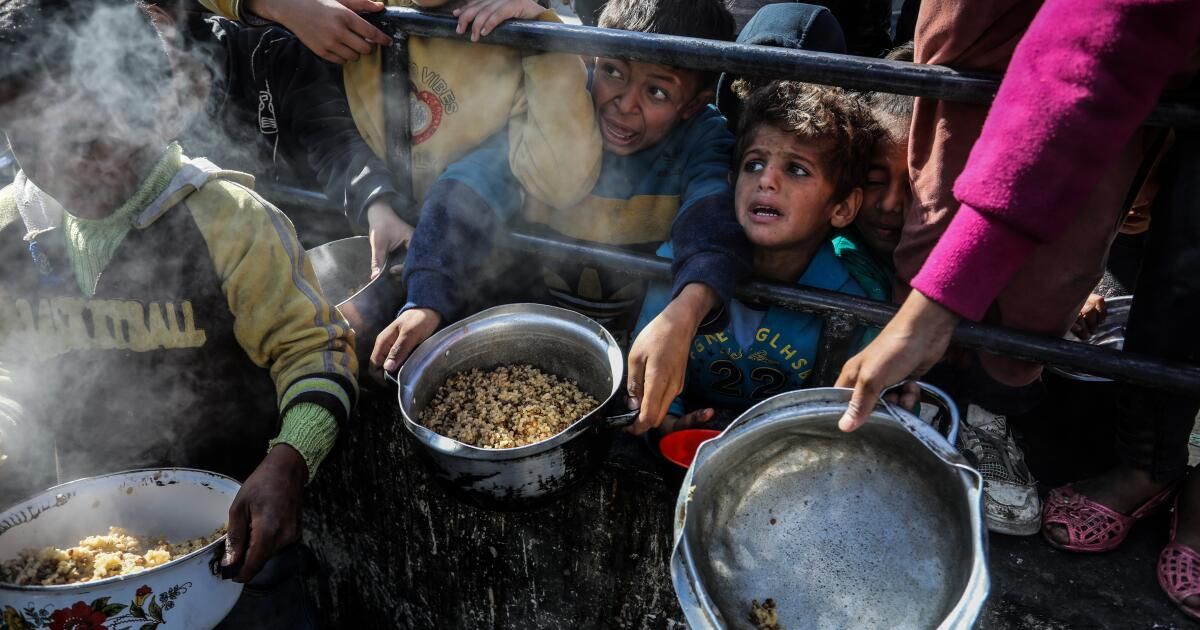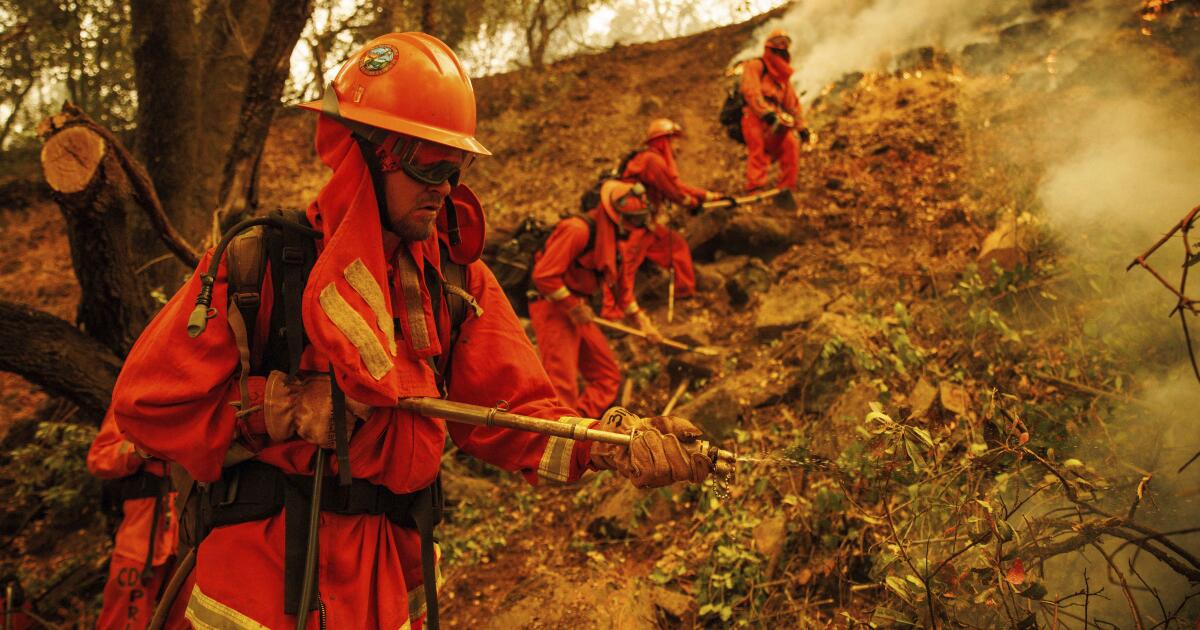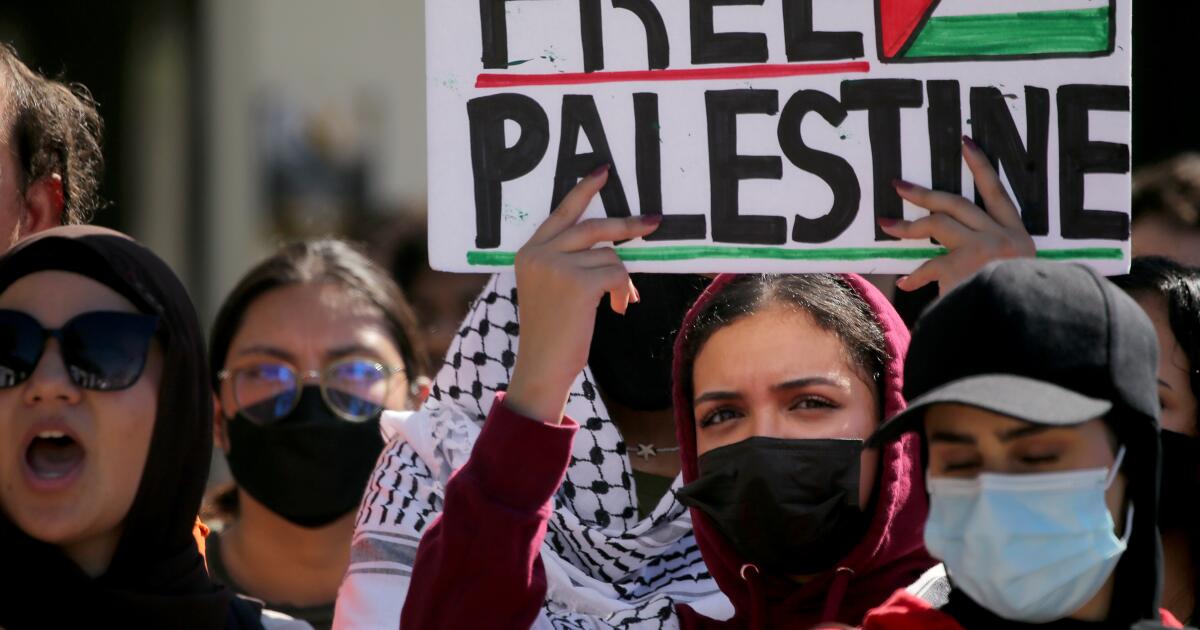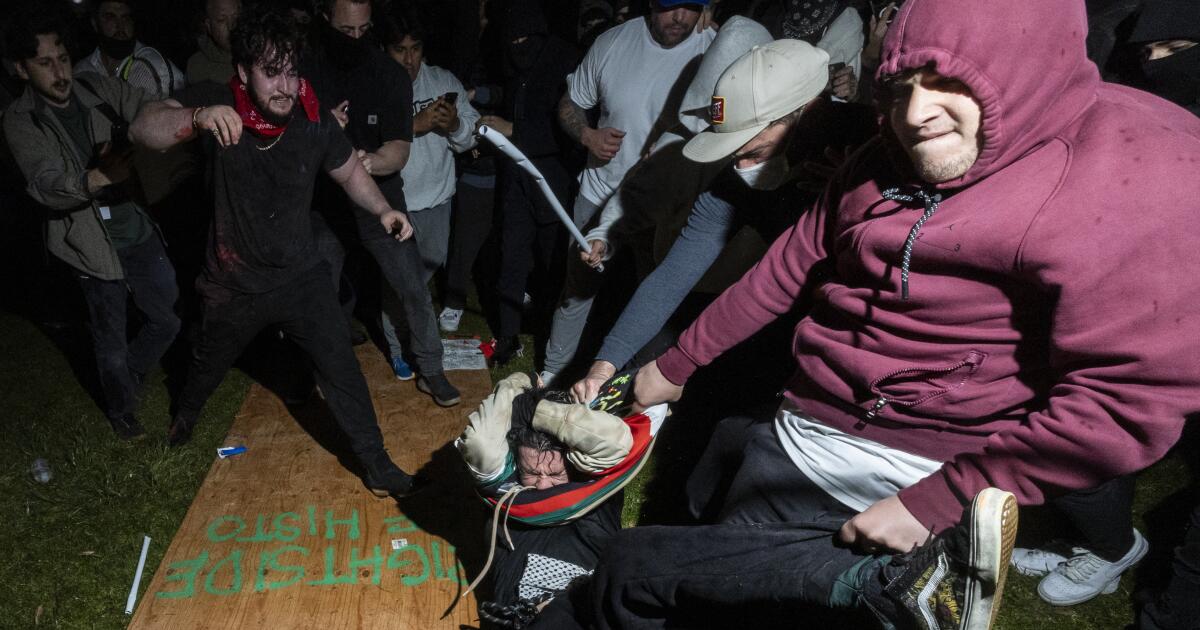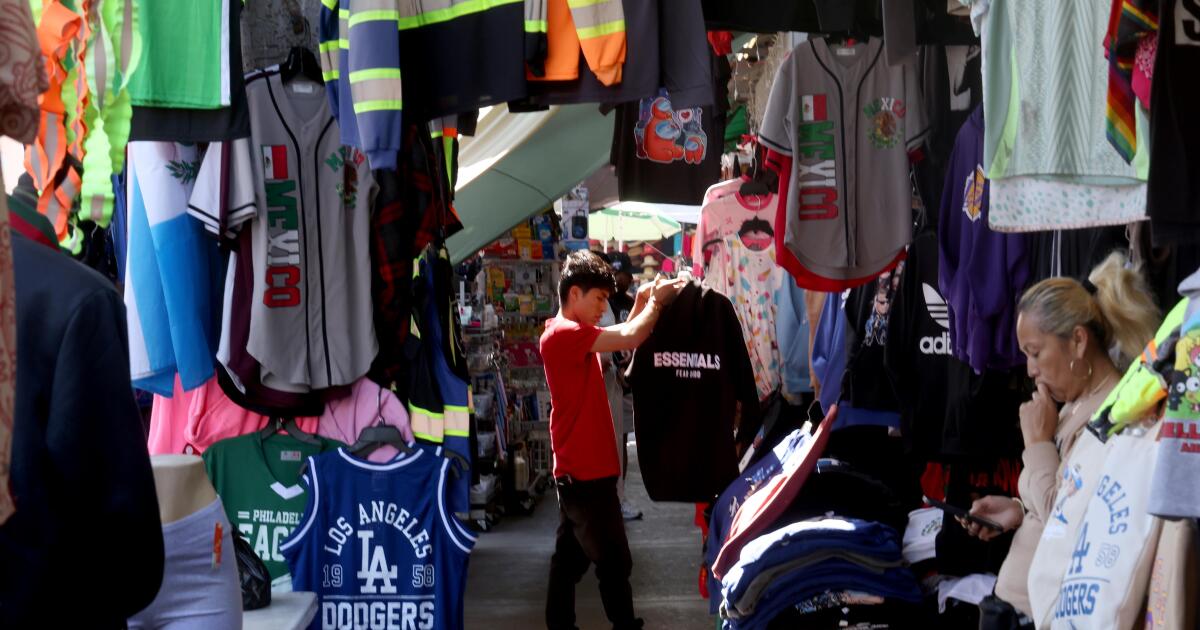At the end of January, I left my home in Virginia, where I work as a plastic and reconstructive surgeon, and joined a group of doctors and nurses traveling to Egypt with the humanitarian aid group MedGlobal to volunteer in Gaza.
I have worked in other war zones. But what I witnessed over the next 10 days in Gaza was not war: it was annihilation. At least 28,000 Palestinians have been killed in the Israeli bombing of Gaza. From Cairo, the capital of Egypt, we drove 12 hours east to the Rafah border. We passed miles of humanitarian aid trucks parked because they were not allowed into Gaza. Apart from my team and other envoy members from the United Nations and the World Health Organization, there were very few others there.
Entering southern Gaza on January 29, where many have fled the north, felt like the first pages of a dystopian novel. Our ears were numb from the constant hum of what I was told were surveillance drones constantly circling. Our noses were consumed by the stench of 1 million displaced humans living in close proximity without proper sanitation. Our eyes were lost in the sea of tents. We stayed in a guest house in Rafah. Our first night was cold and many of us couldn't sleep. We stood on the balcony listening to the bombs and watching the smoke rising from Khan Yunis.
As we approached the European Gaza Hospital The next day, rows of tents were lined up and blocking the streets. Many Palestinians gravitated toward this and other hospitals in the hope that it would represent a sanctuary from violence; they were wrong.
People also entered the hospital: living in hallways, stairwells, and even storage closets. The old walkways designed by European Union To accommodate the heavy traffic of medical personnel, stretchers and equipment were now reduced to a single-file aisle. On either side, blankets hung from the ceiling to cordon off small areas for entire families, offering a bit of privacy. A hospital designed to house about 300 patients was now struggling to care for more than 1,000 patients and hundreds more seeking shelter.
There were a limited number of local surgeons available. We were told that many had been killed or arrested and that their whereabouts or even existence were unknown. Others were trapped in occupied areas in the north or in nearby places where it was too risky to travel to the hospital. There was only one local plastic surgeon left who covered the hospital 24/7. His house had been destroyed, so he lived in the hospital and was able to keep all of his personal belongings in two small carry-on bags. This narrative became very common among the rest of the hospital staff. This surgeon was lucky because his wife and his daughter were still alive, although almost everyone who worked at the hospital was mourning the loss of their loved ones.
I started working immediately, performing 10 to 12 surgeries a day, working 14 to 16 hours straight. The operating room often shook from the incessant bombardments, sometimes as frequent as every 30 seconds. We operate in non-sterile environments that would have been unthinkable in the United States. We had limited access to critical medical equipment: We performed arm and leg amputations daily, using a Gigli saw, a Civil War-era tool, essentially a segment of barbed wire. Many amputations could have been avoided if we had access to standard medical equipment. It was a struggle trying to care for all the wounded within the structures of a health system that has completely collapsed.
I listened to my patients as they whispered their stories to me as I took them to the operating room for surgery. Most were sleeping in their homes when they were bombed. I couldn't help but think that the lucky ones died instantly, either from the force of the explosion or from being buried in the rubble. Survivors faced hours of surgery and multiple trips to the operating room, while grieving the loss of their children and spouses. Their bodies were filled with shrapnel that had to be surgically removed from their flesh, one piece at a time.
I stopped keeping track of how many new orphans I had operated on. After surgery they would be shelved somewhere in the hospital, I'm not sure who will care for them or how they will survive. On one occasion, their parents took a handful of children, all ages 5 to 8, to the emergency room. They all had sniper shots in the head. These families were returning to their homes in Khan Yunis, about 4 kilometers from the hospital, after the Israeli tanks withdrew. But the snipers apparently stayed behind. None of these children survived.
On my last day, as I returned to the guesthouse where the locals knew foreigners were staying, a boy ran up and gave me a small gift. It was a rock on the beach, with an inscription in Arabic written in marker: “From Gaza, with love, despite the pain.” As I stood on the balcony looking at Rafah for the last time, we could hear the drones, shelling and machine gun bursts, but this time something was different: the sounds were louder, the explosions were closer.
This week, Israeli forces raided another large hospital in Gaza and are planning a ground offensive in Rafah. I feel incredibly guilty that I was able to leave while millions are forced to endure the nightmare in Gaza. As an American, I think about our tax dollars that pay for the weapons that likely injured my patients there. These people, who have already been expelled from their homes, have nowhere to turn.
Irfan Galaria is a physician with a plastic and reconstructive surgery practice in Chantilly, Virginia.

